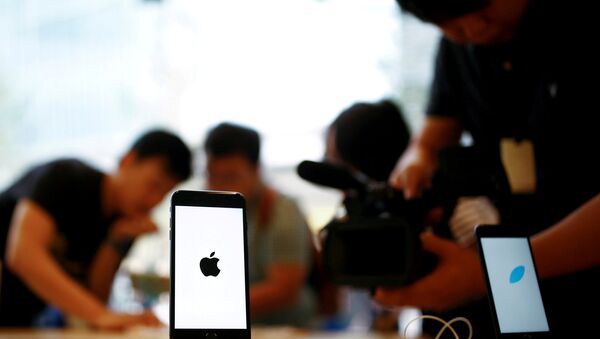There have been both positive and negative reactions to the restrictions. Meanwhile, some alterations are emerging to fill the void, such as new shows from the State-run media and companies.
Last week, Chinese netizens found that virtually all of the movies they saved on video-hosting site bilibili.com had vanished. Photos shared widely on social media showed that TV series and movies across all categories had either gone missing or had been replaced with gray squares.
Bilibili, a hugely popular site with Chinese millennials, was originally a place to watch Japanese anime and other such niche shows, but gradually it became home to all kinds of shows, movies and a community of pop culture enthusiasts. In recent years, official organs such as the Communist Youth League of China and China Central Television (CCTV) even started posting videos on the website in order to attract the younger generation and increase their influence.
Bilibili explained last week on Sina Weibo that to ensure that their content of the website is all in accordance with the relevant laws and regulations, they will review all the videos uploaded by users. During the review, some videos will be inaccessible and after that, unlicensed videos will be removed and the approved ones will be uploaded again, said Bilibili.
A statement posted on the website of China's TV and film watchdog in June said that some websites had not obtained a license from the administration for audio-visual services, and published content about politics and public affairs against government rules, as well as other "negative" content.
In the past few weeks, similar restrictions have been unveiled across a few cultural and entertainment fields in China, arousing controversy and discussion.
Facing restrictions
Bilibili isn't the only video site which has seen its content restricted. Another video sharing site, AcFun, has faced similar restrictions and had all its videos removed. A recent news piece said Weibo also had to remove many overseas videos and accounts.
Last week, the State Administration of Press, Publication, Radio, Film and Television (SAPPRFT) held an organization management conference in Zhengzhou, Central China's Henan Province, discussing new strategies for ensuring a "good environment and order" for communications, according to thepaper.cn.
During the meeting, deputy bureau head Tian Jin said that all production organizations should be responsible for their creations and should seriously think about the social effect of their works, opposing the production and spread of "cultural smog, cultural gutter oil and cultural melamine."
The signs this was coming have been evident for several weeks. But when the first government actions in the Internet entertainment sphere kicked off a few weeks ago, few people expected a whole-scale removal of shows and tranche of new regulations were on their way.
The first signs came when a regulation was announced in June, saying there needs to be "appropriate attention" paid to the celebrity gossip and entertainment business, which was quickly followed by the deletion of more than 20 Weibo and WeChat public accounts.
Among them were two influential accounts, Yansubagua, which put a feminist spin on celebrity news, and Dushedianying, which made comments on current films and often criticized China's film industry as well as media regulations.
On June 22, SAPPRFT released a regulation asking platforms such as Weibo, AcFun and ifeng.com to stop hosting audio-visual programs, as they have not obtained a license. Some talk shows, including the famous Behind the headlines With Wentao, were taken off the digital airwaves.
Gradually, the campaign expanded into more and more areas. On July 1, two regulations were released introducing an evaluation system for online literature websites that demands fictional works "reflect core socialist values and abide by moral norms," and bans any online video that it deems "vulgar," including those which depict homosexuality, extramarital affairs or scenes of obvious "seductive behaviors."
As a result, some literature websites have introduced a mechanism for users to report inappropriate stories to administrators, in return for virtual coins they can use to buy content.
Filling the void
There have been both positive and negative comments on the recent events. At first there was an outpouring of support for the initial measures. When celebrity gossip accounts were banned, many said that it was the right thing to do because these accounts often invaded stars' privacy or published rumors as fact. Besides, some of the information shared was excessive and misled China's youth.
A commentary published in the People's Daily back in June read that entertainment-related activities, whether they are on the Internet or not, whether they involve celebrities or not, whatever the size of the platform, "should adhere to society's mainstream values and match society's mainstream viewpoints" and that "entertainment without a core can only end up in hollowness, as an indulgence without meaning."
"It is actually a positive trend that online platforms have begun to get a sense of respect and are more regulated," said Xu Xinming, a Beijing-based lawyer who specializes in IPR.
Xu also noted that video-streaming websites could commercialize their operations by buying the copyrights of approved shows and charging users to view content.
But after shows and movies were removed from AcFun and Bilibili, controversies were aroused as people began to voice their concern that their entertainment options have been significantly reduced. Some claimed that most of the content that was removed was not even controversial.
"I'm so heartbroken I feel like I can't breathe. I won't forget all the Japanese, American, British or Thai dramas I've watched on Bilibili, they've brought me so much laughter and tears, how can they be gone in an instant?" one netizen mourned.
The situation has certainly brought a dilemma for content producers, who are trying to regain their lost audience. After the most recent crackdown on WeChat public accounts, Dushedianying and Yansubagua opened up new accounts under different names and resumed their daily updates, although some users say their content is not as bold as it once was.
Some netizens joked that since losing shows on the "A-station" (AcFun) and the "B-station" (Bilibili), one has to turn to the "C-station" — CCTV — in order to keep up to date on entertainment matters.
At the same time, there are new shows that are coming to take advantage of this void. CCTV has just announced that it's co-producing an animation series with an American company, titled Nezha and the Transformers, possibly portraying a fight between a famous character from Chinese myth and the well-known US film and television franchise.
A recent news piece published by magazine Blog Weekly described the lives of some netizens after their favorite shows were taken down from AcFun and Bilibili. Most of those people label themselves "second-dimension dwellers," as they do not have much of a social life. Most of them would get off work every day and go straight home to watch shows online to relax, so in the first week or so many of these people were devastated.
But life goes on. According to Blog Weekly, Wang Lei, someone who cried instantly when she found out she couldn't watch her favorite series, went to the shopping mall and bought three skirts, a shirt and several pairs of earrings.
Tang Jian, someone who claimed he couldn't possibly find a girlfriend because of his TV-addict lifestyle indeed found a sweetheart and is planning a trip abroad in October.
Huang Ze, who has been watching animation on AcFun and Bilibili since he was in high school, has turned his attention to working out at the gym and gaming. After a few days of his new lifestyle, he suddenly realized he had not watched any live broadcasts of animations or video games, nor spent any money on virtual coins, for the entire time.
This article was originally published in the Global Times.







